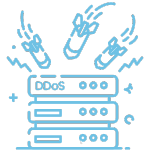In today’s digital landscape, effective communication is vital for small businesses. A corporate email solution not only enhances professionalism but also improves collaboration and security. However, the decision to implement such a system comes with various cost implications that small business owners must consider. This essay delves into the financial aspects of adopting a corporate email solution, including initial setup costs, ongoing expenses, and potential savings.
Initial Setup Costs
- Domain Registration:
A corporate email solution typically requires a custom domain name (e.g., yourname@yourbusiness.com). The cost of domain registration can range from $10 to $50 per year, depending on the registrar and the domain extension chosen. This investment is crucial for establishing a professional online presence. - Email Hosting Fees:
The primary cost associated with corporate email solutions is the hosting fees. Various providers offer different pricing tiers based on features and storage capacity. For example:- Google Workspace: Pricing starts at approximately $6 per user per month for basic features and goes up to $18 for more advanced options.
- Microsoft 365: Plans range from $4 to $12.50 per user per month, depending on the features included.
- Other Providers: Services like Zoho Mail and Rackspace offer competitive pricing, often starting around $1 to $5 per user per month for basic plans.
- Setup and Migration Costs:
If a business is transitioning from a free or less sophisticated email service, there may be costs associated with migrating existing emails and data to the new platform. Depending on the complexity of the migration, this could range from minimal DIY efforts to several hundred dollars if professional assistance is required.
Ongoing Expenses
- Monthly Subscription Fees:
Once set up, businesses will incur ongoing subscription fees based on the number of users and chosen plan features. For example, if a small business has five employees and chooses a plan costing $10 per user per month, the total monthly expense would be $50. - Additional Features:
Many corporate email solutions offer add-ons or premium features such as advanced security measures, increased storage capacity, or enhanced collaboration tools (e.g., shared calendars and cloud storage). These features can add to the monthly costs but may be necessary for businesses handling sensitive information or requiring robust collaboration capabilities. - Support and Maintenance:
While many providers include customer support in their plans, some businesses may require additional technical support or IT services to manage their email systems effectively. This could involve hiring an external IT consultant or subscribing to premium support services, which can add to overall expenses.
Potential Savings
- Increased Productivity:
A robust corporate email solution enhances communication efficiency among employees, leading to improved productivity. Features such as integrated calendars, task management tools, and collaboration platforms streamline workflows, allowing employees to focus on their core responsibilities rather than managing inefficient communication methods. - Reduced Risk of Data Breaches:
Investing in secure email solutions can save businesses significant costs associated with data breaches. Cyberattacks can lead to financial losses due to theft or downtime, as well as reputational damage that can affect customer trust. By implementing strong security measures (e.g., encryption and spam filters), businesses can mitigate these risks. - Professional Image:
Using a corporate email solution with a custom domain enhances credibility and professionalism when communicating with clients and partners. This can lead to increased customer trust and potentially higher sales or contracts over time. - Scalability:
Many corporate email solutions offer scalable pricing models that allow businesses to expand their services as they grow without incurring excessive costs upfront. This flexibility ensures that small businesses only pay for what they need at any given time.
Conclusion
In conclusion, implementing a corporate email solution for a small business involves various cost implications that should be carefully considered. Initial setup costs such as domain registration and hosting fees are essential investments in establishing a professional online presence. Ongoing expenses include subscription fees and potential additional features that enhance functionality. However, the potential savings in productivity gains, reduced risk of data breaches, improved professionalism, and scalability make corporate email solutions a worthwhile investment for small businesses looking to thrive in today’s competitive landscape. By weighing these costs against the benefits, business owners can make informed decisions that align with their operational needs and budget constraints.









